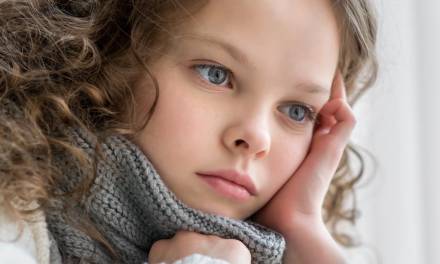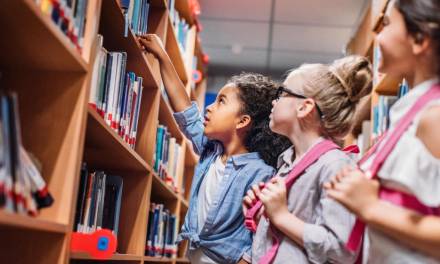Everyone’s mental health has been affected during lockdown and with more students being referred to counselling services, the impact on children’s mental health should not be underestimated.
Primary and high school teachers have said children had “become more vulnerable in lockdown“, according to the BBC.
75% of mental health problems in adult life (excluding dementia) start under 18. What has been the impact on children’s mental health?
The impact of school closures on children’s mental health
Periods of ‘lockdown’ have been one of the most significant public health measures implemented during the Covid-19, where whole populations have been advised to remain in their households other than to collect necessary supplies, to care for others, or to exercise. One of the most significant impacts of this was the decision to close schools and the subsequent impact on children’s mental health.
Studies around the world have found “young people report increased depressive symptoms and anxiety symptoms and can experience negative psychological consequences” due to the pandemic.
The reasons for this include the perceived threat of the virus, confusion, disruption and isolation imposed by this type of health-related crisis. There has also been some evidence that social media has played a role.
Further evidence of the mental health and wellbeing impacts of this kind of quarantine related to both the fear of stigma and the stigma experienced by those young people who had been quarantined and returned to college which this study identifies as a risk factor for maintaining social support mechanisms with friends, classmates or roommates post-quarantine.
Factors affecting children’s mental health
Loneliness: There has been a number reviews that link loneliness and mental health. Evidence suggests that amongst the general population in the UK, the proportion of adults experiencing loneliness is highest amongst young adults aged 18-24, with another survey identifying that 50% of 16-24 year-olds have experienced ‘lockdown loneliness’. This could, as the literature suggests, be a consequence of the loss of peer group support during this important developmental stages where peer interaction is important for brain development, self-concept construction and ultimately mental health and wellbeing.
Worries about school: These include worries and concerns around their education (all ages), missing school (all ages), transitions and being away from school (primary school age), academic pressures (secondary school age), their career (young adults), and uncertainties about the future more generally (young adults).
Similarly, in the case of children and young people currently in contact with youth justice systems, it has similarly been reported that lack of contact with others, boredom, not being able to attend school, financial worries and general uncertainty about the future are key factors impacting mental health and wellbeing.
Lack of communication: The majority of parents are reporting that their children are keeping in regular contact with family and friends via video-chat and are getting regular physical exercise, factors that can support the mental health and wellbeing of children and young people. However, this was not the case for all children – particularly those in younger year groups.
Detrimental affects on mental health by group
According to mentalhealth.org.uk:
There is mixed evidence of the factors associated with pre-quarantine predictors of impact on mental health and wellbeing. Some factors associated with negative effects on the mental health and wellbeing of adults include those that are younger, female, with a history of psychiatric illness or chronic illness/poor health (diagnosed or self-reported), and single parents adolescents. There is mixed evidence on the impact of education level as a predictor of impact of lockdown on mental health. Post-quarantine stressors can include finances and stigma for healthcare workers.
At a broader level, Harkins has identified that there are several groups who have experienced, and are still experiencing, disproportionate vulnerability to the lockdown public health measures. These groups include: disadvantaged communities, people with disabilities, BAME groups, people experiencing homelessness, those affected by violence, older people, and frontline health and care staff.
Particular note should also be given to the increases in both calls and referrals to domestic abuse charities, with the mental health impacts this has for the victim, and to the children and young people witnessing or experiencing such abuse, being of primary concern as we emerge from lockdown.
What has children’s mental health been like on their return to school?
Children’s mental health has suffered the “collateral damage” of Covid-19, according to the Welsh Parliament.
Schools have reported a surge in mental health incidents since lockdown.
Ms Jermin-Jones, assistant head teacher at Ysgol Brynsierfel, a primary school in Llwynhendy, near Llanelli, said:
Some had developed unusual phobias. One girl started fearing holes.
She had been a happy-go-lucky, confident little girl sailing through life. But she went into her shell unexpectedly.
She started getting nightmares about awful things. She just worried so much about the country locking down.
You would never had thought she would need help before this.
Mr Rogers, assistant head teacher at Ysgol Garth Olwg secondary school in Pontypridd added:
What we’ve seen is that we now have a new group of vulnerable children who weren’t vulnerable before.
The school asked pupils to fill out a wellbeing questionnaire, and the results suggest more pupils needed help.
Their biggest worry was falling behind with school work, but others had new social anxieties about how to behave due to coronavirus.
Read more: mental health tips for parents and children
EDClass can support mental health
EDClass is proven in helping students with mental health, separation anxiety and depression still feel involved and part of school. Our aim is to have live teachers able to deliver sessions to these students wherever they are – all they need to do is log on and access learning.
We work on a stepping stones scenario basis, helping to encourage and build students’ self-esteem and lower their anxiety to return to school, this process could be short but in mental health, it will take as long as needed.
We have wellbeing officers and Designated Safeguarding Leads and trained workers where safeguarding, well being and support is paramount.
Over the years, EDClass has built different tools and systems to help a multitude of students, including those battling mental health problems. Over the recent pandemic your needs have changed and so have we; we have adapted our curriculum and operations to help your organisation. This is started with the re-engagement of education, which we can help install in pupils at their own pace.
Our hours of teaching will also help students on medication – as these can be provided for students flexibly, such as in afternoon or early evening.
For more information on our services click here. For testimonials click here.
Alternatively call 01909 568 338.









